 ¿Pueden los animales ser morales?
¿Pueden los animales ser morales?
Este número de DILEMATA incluye una sección especial dedicada al estudio crítico de algunas de las principales cuestiones éticas implicadas en los debates actuales sobre cognición y comportamiento animal, con especial énfasis en la disputa acerca de si los animales pueden o no ser considerados seres morales.
El punto de partida del debate es inmejorable. Mark Rowlands presenta un excelentemente argumentado y provocador artículo en defensa de la tesis según la cual los animales pueden ser considerados sujetos morales. Realizando una rigurosa distinción entre agentes, pacientes y sujetos morales; Rowlands sostiene que los animales pueden estar, por lo menos algunas veces, motivados a actuar por consideraciones morales, más específicamente, por emociones con un contenido moral identificable.
A continuación, una serie de autores examinan críticamente el texto de Rowlands desde los más variados enfoques, planteando importantes cuestiones críticas a tener en cuenta.
Este número 9 de DILEMATA se completa con las aportaciones de Mar Cabezas sobre el principio de precaución y el papel del miedo anticipado en la toma de decisiones ético-políticas; Daniel Innerarity en torno a la idea de justicia de climática; Soledad Arnau acerca del aborto eugenésico y post-parto en relación con la diversidad funcional y la cultura de la paz; y, finalmente, con la reflexión de Paulina Morales sobre la noción de cuidado en A. MacIntyre y su repercusión en las profesiones sanitarias.
La sección de reseñas incluye el comentario del libro “Animales no humanos entre animales humanos”, un excelente complemento al debate de este número. Asimismo, se comentan obras recientes sobre la ética y el deporte, el arte y la ciencia, la salud y la enfermedad, y el comercio internacional de diamantes.
Esperamos que DILEMATA siga siendo de su interés y le invitamos a colaborar con sus contribuciones, propuestas y sugerencias, así como a responder a los debates planteados en nuestras páginas. DILEMATA es, sin duda, una revista abierta.
MIKEL TORRES ALDAVE (UPV/EHU)
Editor invitado para este número
TXETXU AUSÍN (IFS/CCHS/CSIC)
Editor
**************************************************
DILEMATA 9/ May 2012 (ISSN 1989-7022) International Journal of Applied Ethics
http://revista.dilemata.net/index.php/dilemata/issue/view/10
This number of DILEMATA includes a special section devoted to the critical study of a portion of the main ethical problems entailed in current disputations about animal cognition and behaviour, focusing especially on discussions about whether or not animals can be contemplated as moral beings.
The starting point of the enquiry is unbeatable. Mark Rowlands presents a remarkably well argued, challenging and provocative paper vindicating the thesis that animals might be moral subjects. Making a rigorous distinction between moral agents, patients and subjects, Rowlands claims that animals could be motivated to act, at least sometimes, by moral considerations, more specifically, by emotions with an identifiable moral content.
Then a group of authors scrutinize critically Rowlands’ ideas from remarkably wide theoretical approaches, setting out critical questions of decisive importance that should be examined.
This 9 issue of DILEMATA also includes the contributions of Mar Cabezas on the precautionary principle and the role of anticipated fear in ethic-political decision making; Daniel Innerarity about the idea of climate justice; Soledad Arnau on eugenic abortion and after-birth abortion related to functional diversity and culture of peace; and finally, the reflection of Paulina Morales concerning the notion of care in A. MacIntyre and its impact to health professions.
Review section encloses the commentary on the book “Non-human Animals among Human Animals”, an excellent complement to the debate in this issue. Likewise, there are reviews on recent publications about ethics and sports, arts and science, health and illness, and the international trade of diamonds.
We hope that DILEMATA remains attracting your interest, and encourage you to take part in this project, either by sending your proposals for considerations, or by replying to the debates already opened in this or previous issues. DILEMATA is an open journal indeed.
MIKEL TORRES ALDAVE (University of the Basque Country UPV/EHU)
Invited Editor for this issue
TXETXU AUSÍN (Spanish National Research Council CSIC)
Editor in Chief


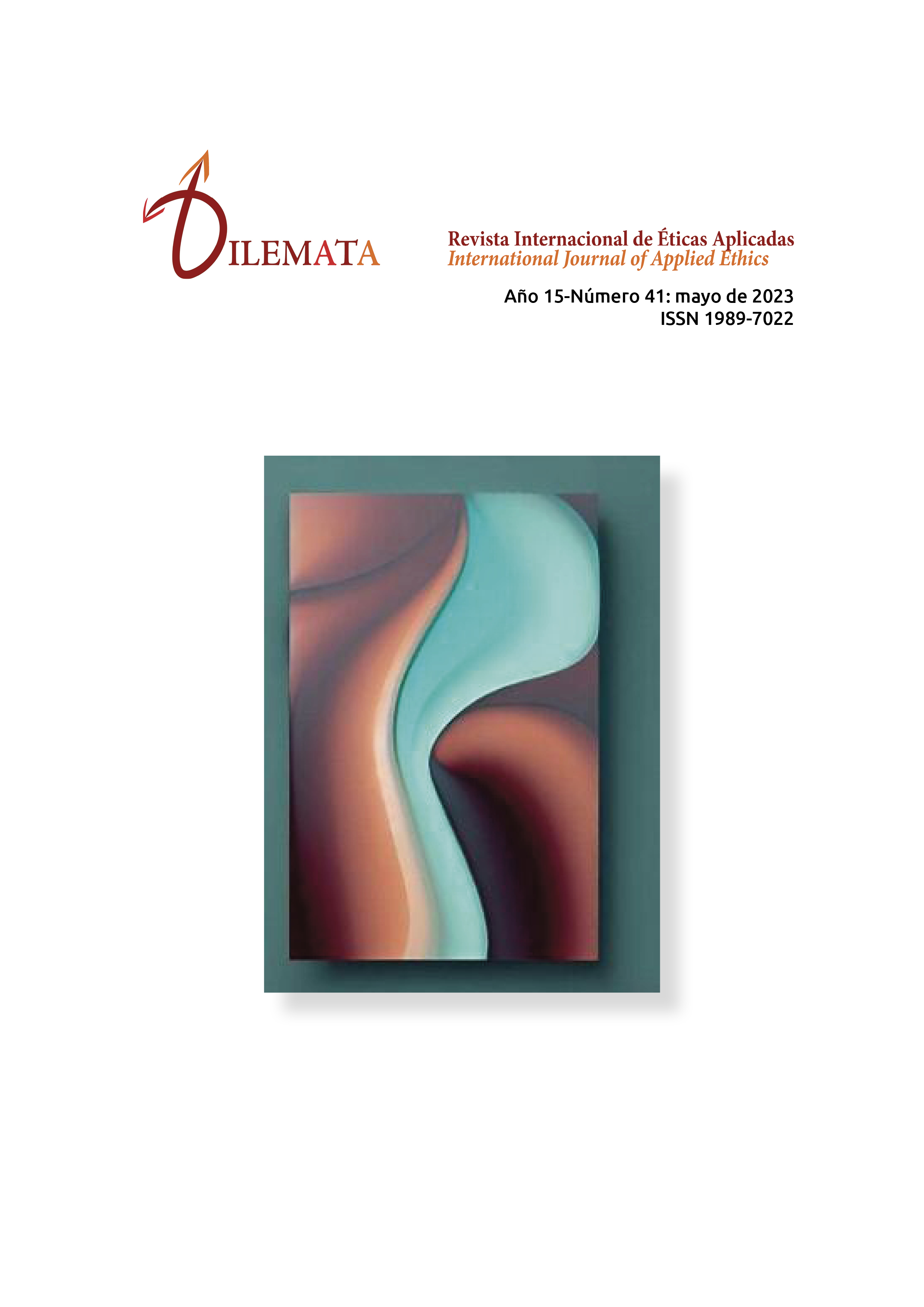 Nº 41, mayo 2023
Nº 41, mayo 2023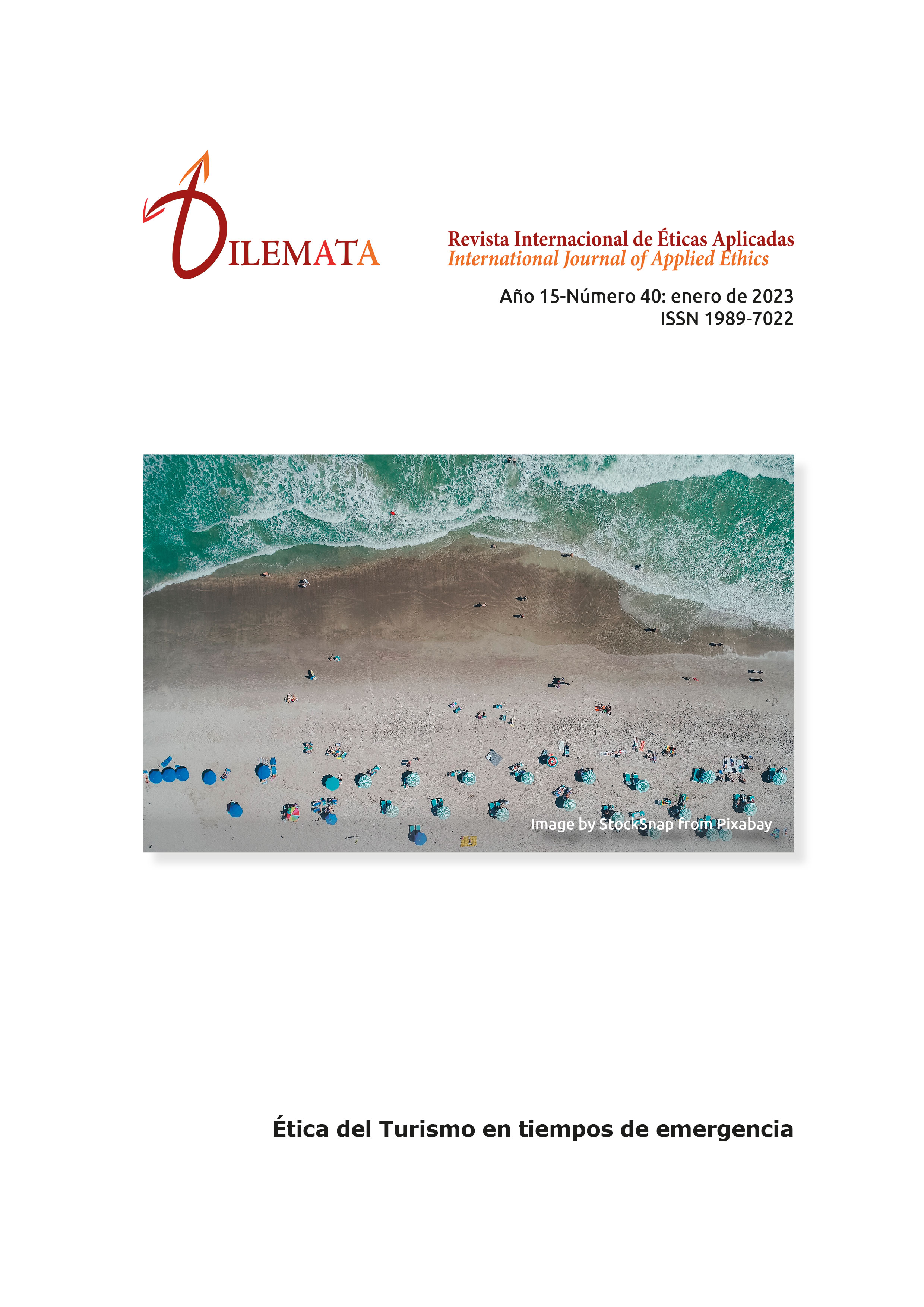 Nº 40, enero 2023
Nº 40, enero 2023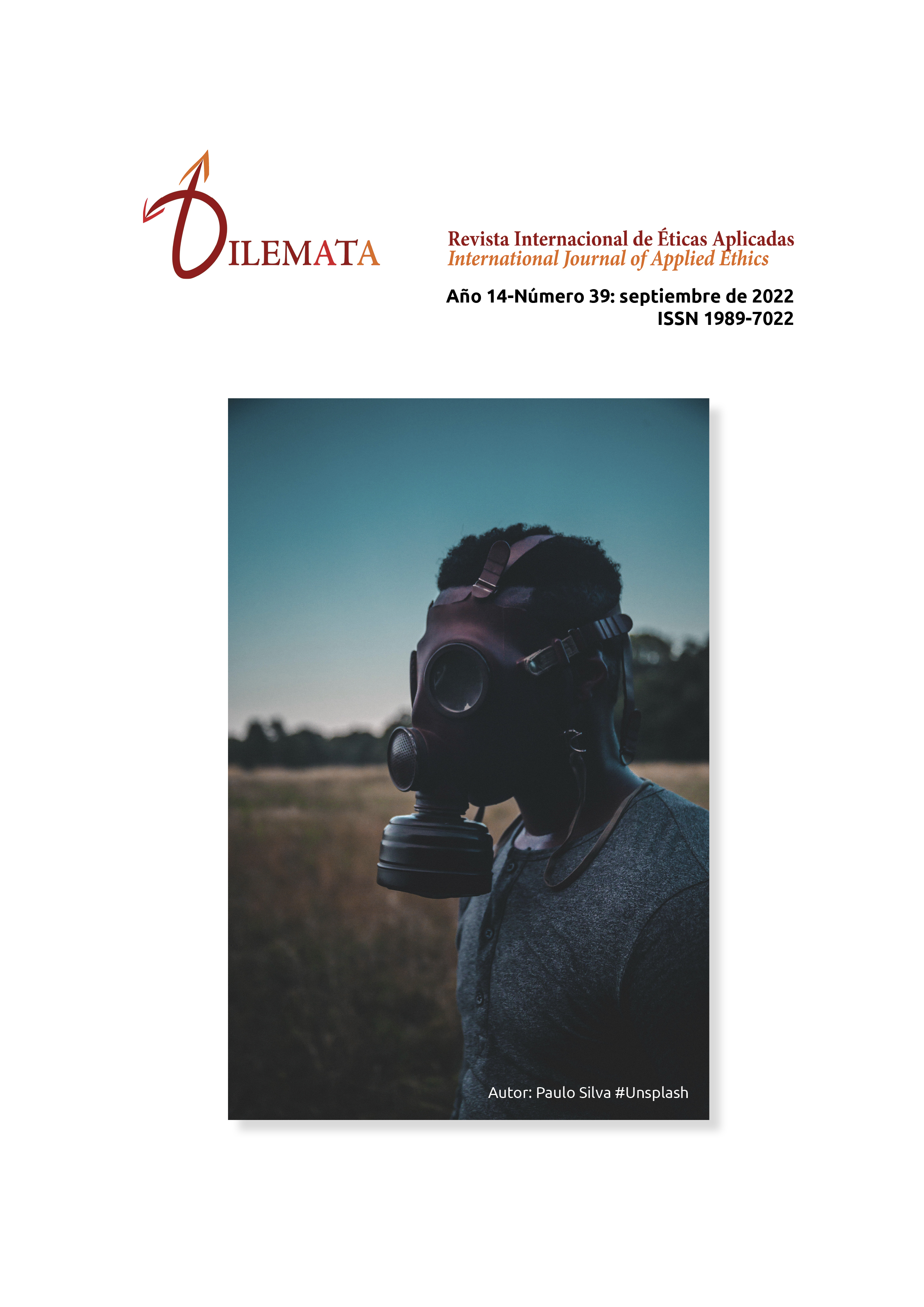 Nº 39, septiembre 2022
Nº 39, septiembre 2022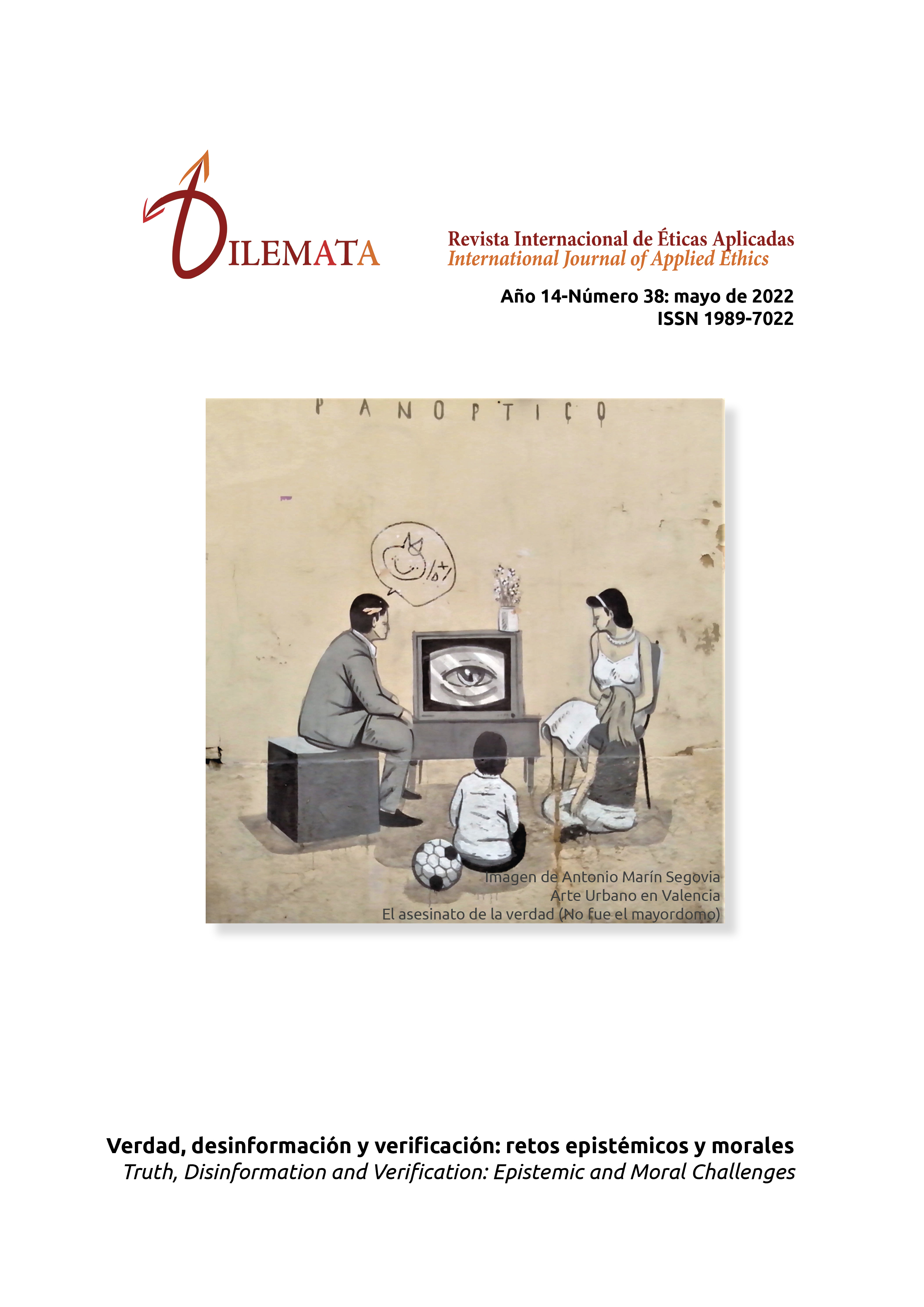 Nº 38, mayo 2022
Nº 38, mayo 2022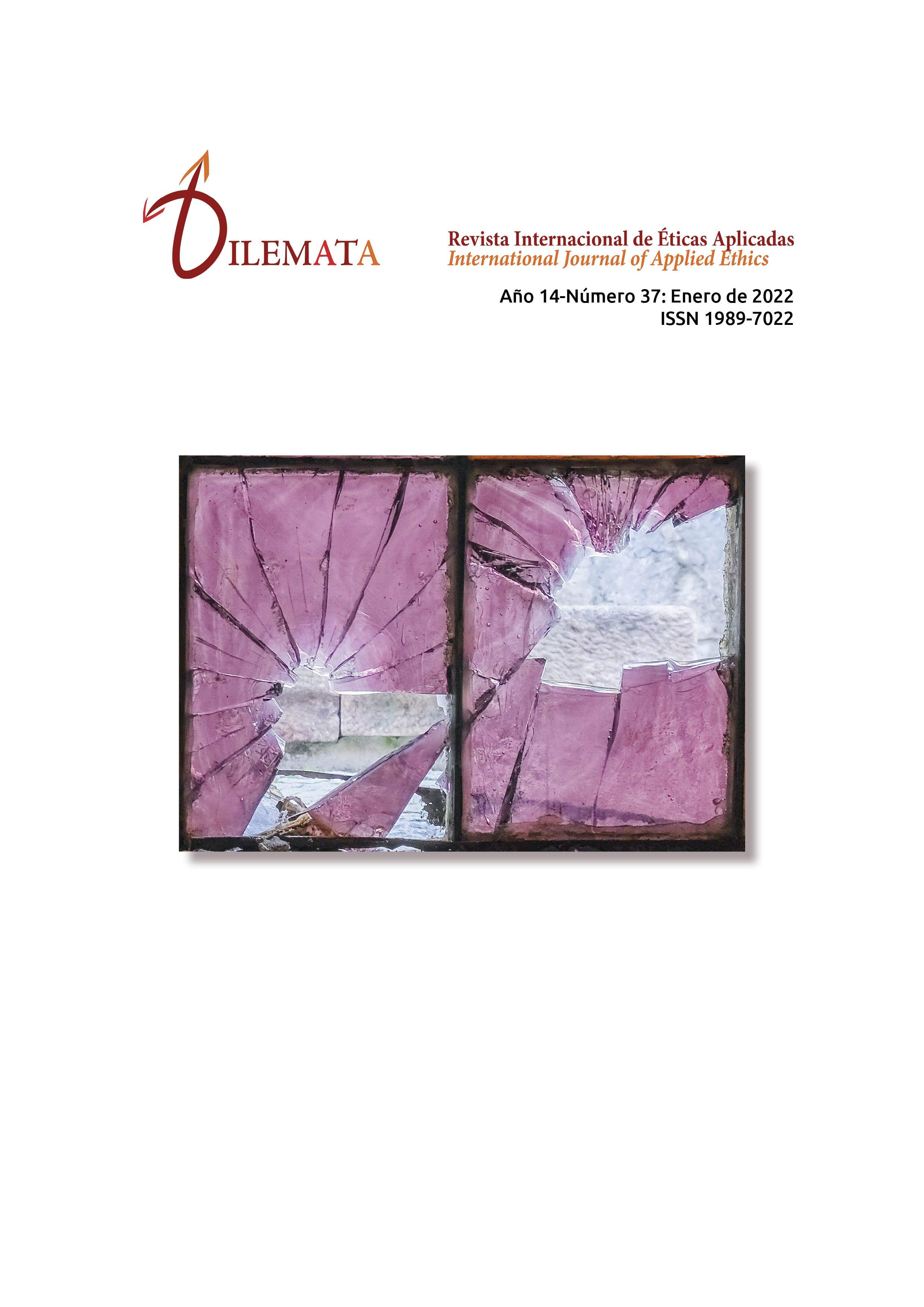 Nº 37, enero 2022
Nº 37, enero 2022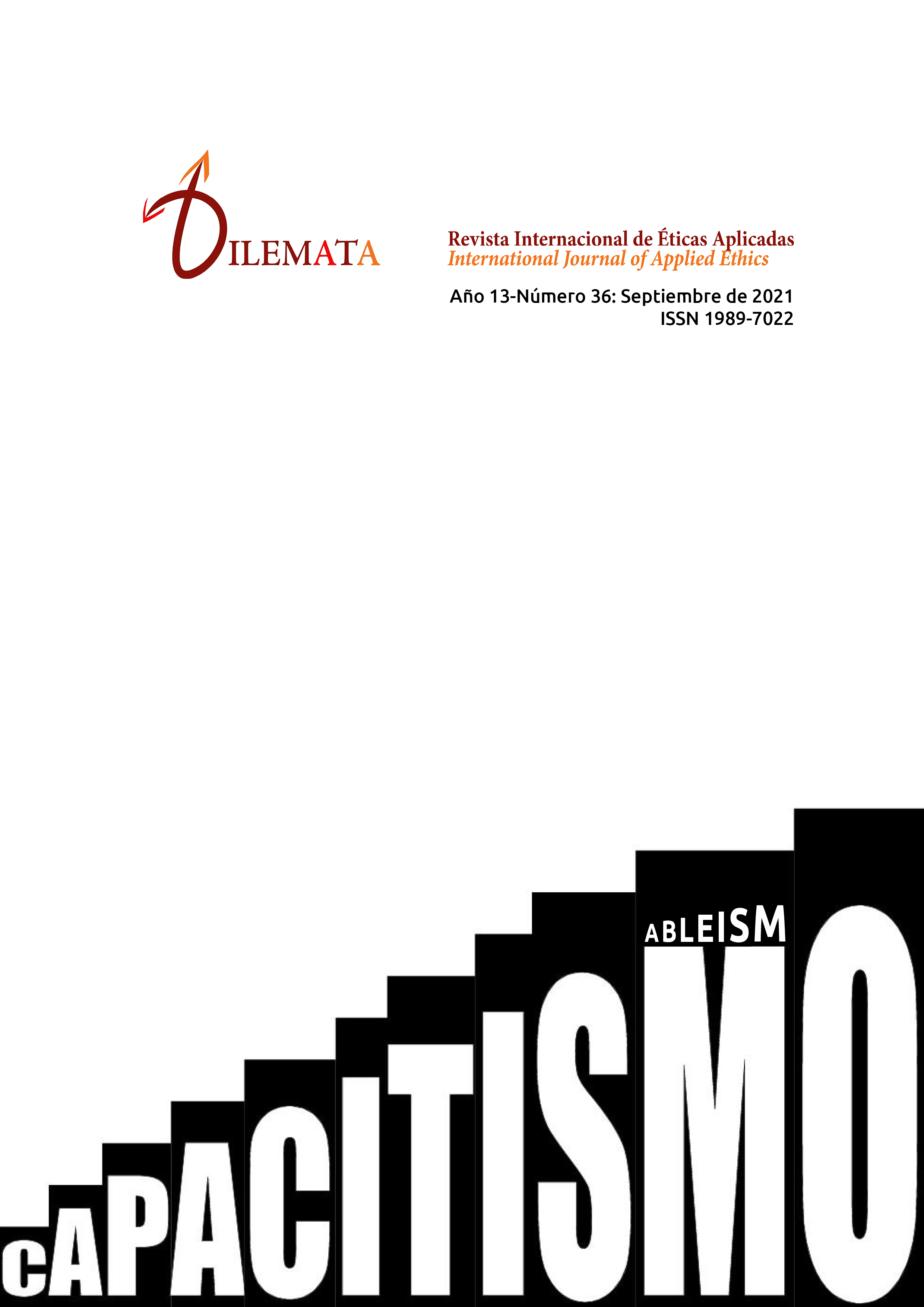 Nº 36, septiembre 2021
Nº 36, septiembre 2021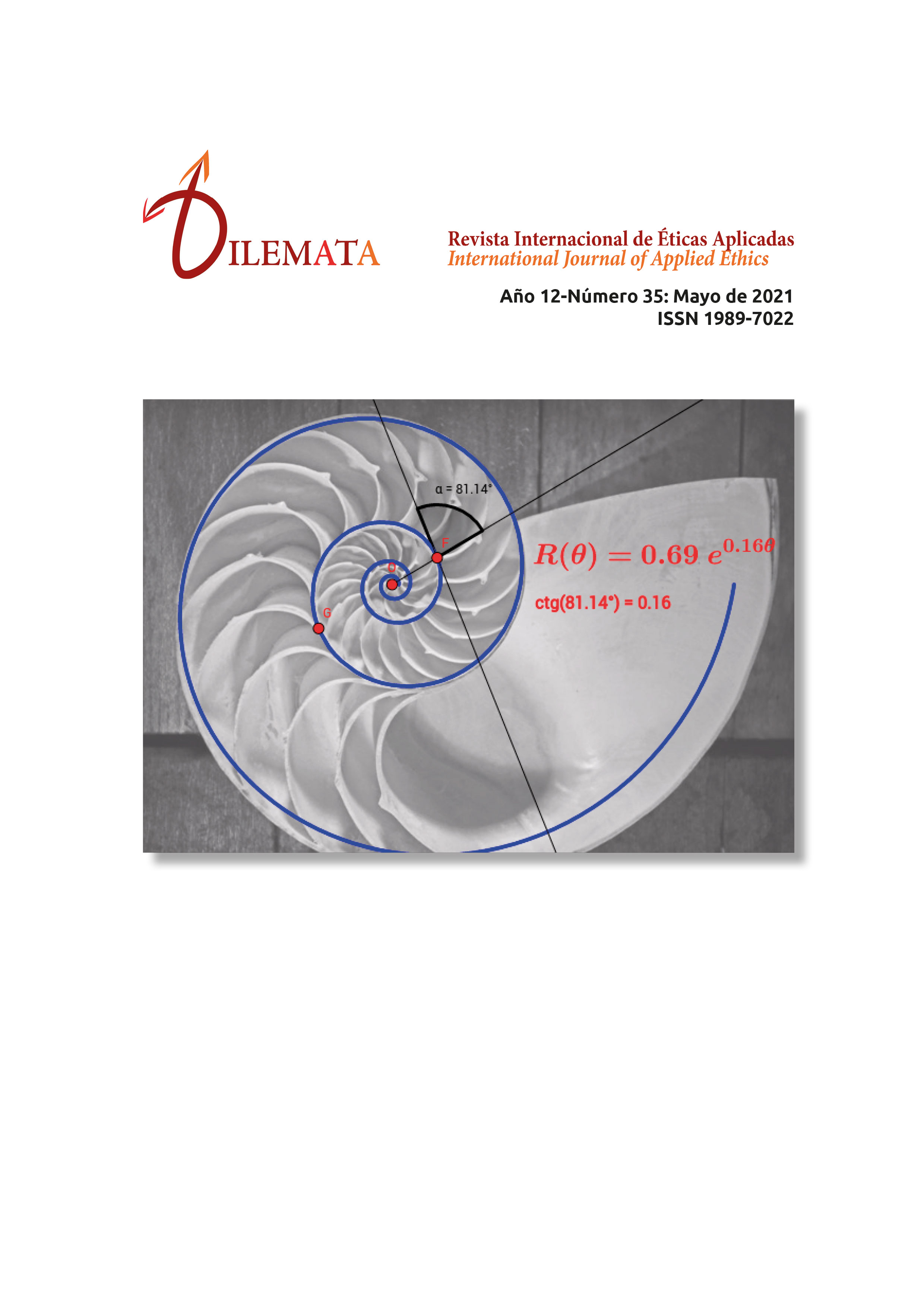 Nº 35, mayo 2021
Nº 35, mayo 2021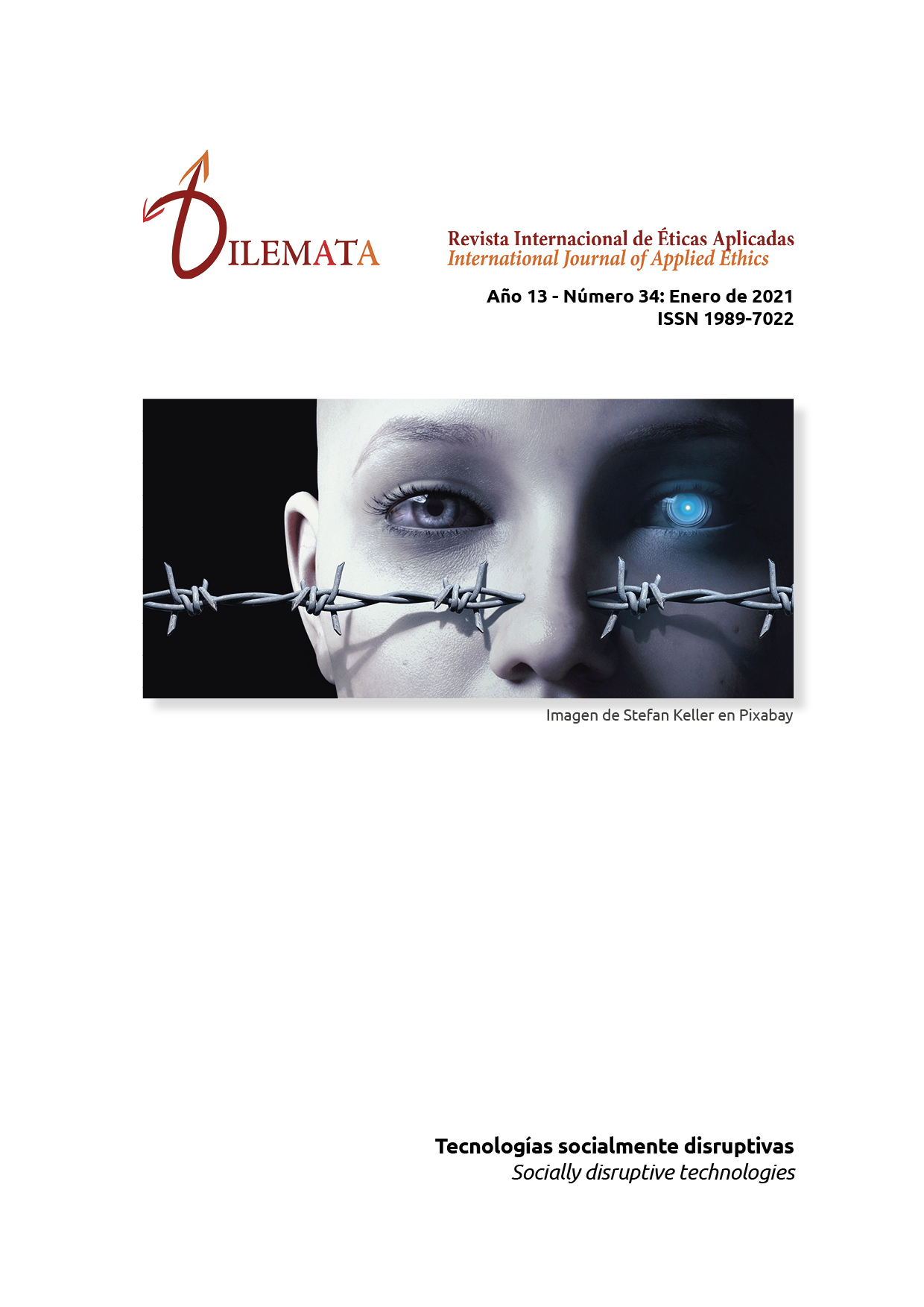 Nº 34, enero 2021
Nº 34, enero 2021